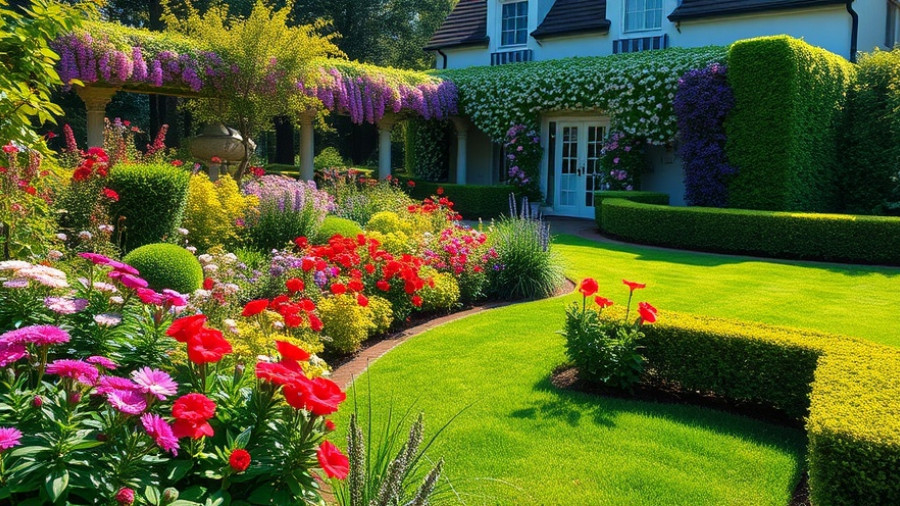
Why Choose Organic Landscape Maintenance?
As environmental awareness grows, more homeowners are opting for organic landscape maintenance practices. This isn’t merely a trend; it’s a proactive strategy that fosters healthier yards while reducing harmful impacts on our ecosystems. Organic methods prioritize the health of soil and biodiversity, leading to lush landscapes that thrive through natural resilience. It's key to understand these benefits, including improved soil structure, reduced chemical runoff, and safer environments for children and pets.
Understanding Soil Health
The foundation of successful landscaping starts with healthy soil. Instead of relying solely on synthetic fertilizers, organic practices nourish the soil itself, cultivating an ecosystem that supports plant vitality. Regular composting and the use of organic mulches enrich the soil naturally, promoting better water retention and nutrient availability. Soil testing can further guide amendments necessary for optimal growth.
Selecting Native Plants
Choosing the right plants is crucial in establishing a sustainable landscape. Native species are often better suited for your local climate and require less water and maintenance. When selecting plants, prioritize those that thrive in the local environment, avoiding invasives and opting for disease-resistant varieties. This smart selection will not only minimize the need for chemical treatments but also enhance the resilience of your yard.
Effective Water Management Techniques
Water conservation is a significant component of organic landscaping. Instead of frequent light watering, consider deeper irrigation techniques that encourage deep root growth. Implementing systems like drip irrigation or utilizing rain barrels can make a substantial difference. Moreover, watering in early mornings mitigates evaporation and fungal growth, enhancing the overall health of your garden.
The Role of Pollinator-Friendly Practices
Incorporating pollinator-friendly landscaping elements is vital for maintaining biodiversity. By nurturing environments that attract native pollinators like bees and butterflies, homeowners can contribute to ecological balance. Simple additions such as butterfly gardens or bee hotels can enhance the health of gardens while supporting these critical species.
Taking Action Towards Sustainability
As stewards of the land, homeowners play a pivotal role in promoting sustainable landscaping practices. It begins with education—understanding the importance of local ecosystems and choosing practices that benefit them. By employing organic methods and supporting biodiversity, we can collectively foster greener environments for current and future generations. Whether you opt for community initiatives or implement these practices in your own yard, every small action contributes to a healthier planet.
 Add Row
Add Row  Add
Add 




Write A Comment